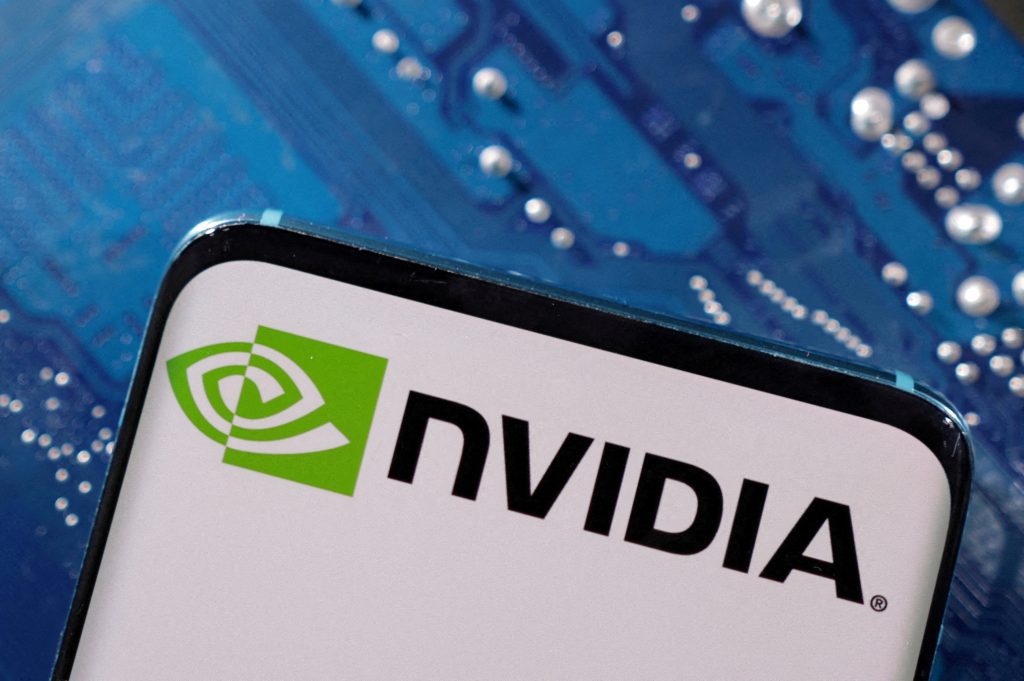
NEW YORK – Nvidia’s stock buyback of $25 billion of its shares after its stock has more than tripled this year caught some investors off-guard, even as they cheered a stellar second-quarter report.
Shares of Nvidia touched a record high on Thursday, a day after the company blew past expectations with its quarterly revenue forecast as an artificial-intelligence boom fueled demand for its chips. Nvidia shares, which had run up in the days leading up to its report, climbed more than 6% on Thursday but pared gains to end the day little changed.
However, Nvidia’s stock buyback – the fifth-biggest repurchase announcement among U.S.-based companies this year, according to EPFR – surprised some investors.
Companies commonly repurchase their stock as a way to return capital to shareholders. Such buybacks can benefit a stock’s price by reducing the supply of shares and increasing demand, and can boost earnings per share, a closely watched investor metric.
But while shareholders often see buybacks as an encouraging sign when a company’s stock appears cheap, Nvidia’s shares have shot up some 220% in 2023, leaving investors searching for the reasons behind the company’s move.
“It’s a little bit of a head-scratcher,” said King Lip, chief strategist at Baker Avenue Wealth Management, which has $2.5 billion in assets under management and counts Nvidia as a top-10 holding.
“As a shareholder, we like to see stock buybacks, but for a company like Nvidia that is growing so fast, you kind of want to see their earnings being plowed back in to the company,” Lip added.
As opposed to companies with sluggish financial performance growth that turn to buybacks to help prop up earnings per share, the announcement from Nvidia “comes as a surprise” given that they are “a hot growth tech name,” said Daniel Morgan, senior portfolio manager at Synovus Trust, which owns Nvidia shares.
“The message seems to be that (Nvidia’s) management believes that their stock is undervalued,” Morgan said.
GENERATING CASH
For some investors, an “undervalued” Nvidia might be a difficult message to stomach. Nvidia shares traded at 45 times forward 12-month earnings estimates as of Wednesday compared with about 19 times for the overall S&P 500, according to Refinitiv Datastream.
“Historically, you’d love it when a company is able to buy their stock back when it is depressed, but I don’t think anybody can make the case that it is at a depressed place right now,” said Tom Plumb, CEO and lead portfolio manager at Plumb Funds, which has Nvidia as one of its largest holdings.
However, Plumb said, the company might be limited in how it can deploy its resources after its deal to buy semiconductor designer Arm Holdings Ltd collapsed last year amid regulatory concerns.
“They’re generating incredible amounts of cash, more than they need for their current investment strategy, and they’re prohibited from buying significant complementary businesses,” Plumb said. “So what are they going to do with their cash?”
Nvidia spent about 27% of revenue on research and development last year, in line with rival chip companies.
The company did not immediately respond to a request for comment.
In its second-quarter earnings release on Wednesday, Nvidia said its board approved $25 billion in additional share repurchases “without expiration,” and that the company plans to continue repurchases this fiscal year.
Despite the staggering dollar amount, Nvidia’s buyback amounted to only 2.1% of its nearly $1.2 trillion market value, or buyback yield, as of Wednesday. That is less than the historic 2.58% buyback yield for the overall S&P 500, when looking over one-year periods, according to Howard Silverblatt, senior index analyst at S&P Dow Jones Indices.
Meanwhile, several other megacap tech and growth companies have announced even bigger buybacks this year: Apple at $90 billion, Alphabet at $70 billion and Meta Platforms at $40 billion.
Tech companies tend to prefer using cash for buybacks over dividends, because “if they are on the hook for a dividend every quarter that may hinder their ability to take advantage of growth opportunities,” said Daniel Klausner, head of U.S. public equity advisory at Houlihan Lokey.
Indeed, some investors welcomed Nvidia’s buyback decision.
“It’s a show of confidence,” said Francisco Bido, senior portfolio manager for F/M Investments’ large cap focused fund, which holds Nvidia shares. “If they had better use for (the cash), I am pretty sure they would have done it.”
Inside Telecom provides you with an extensive list of content covering all aspects of the Tech industry. Keep an eye on our News section to stay informed and updated with our daily articles.